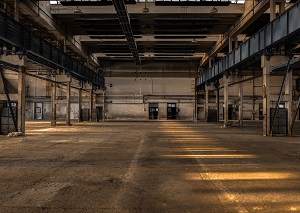Punxsutawney Phil Predicted Early Spring – Is Your Industrial HVAC System Ready?

The 3 Primary Mistakes in Air Management You are Probably Making

How to Know What You’re Getting When You Buy Industrial/Commercial HVAC Equipment
 While February may have given us an extra winter day this year, temperatures reveal that we are right on the cusp of a warm weather break. As we enter spring, we are also entering the sweet spot of cleaning season. When was the last time your building’s HVAC system had a maintenance check or routine inspection? If the only time a check was done was during a repair, maybe it’s time to put in place a routine maintenance plan. Now that winter is over and the HVAC system won’t be taxed as much in the mild weather, spring is the perfect time to prep your system for the hot summer months. Wouldn’t it be great to have the peace of mind of a well running system, rather than deal with the stress of downtime and expense of repair?
While February may have given us an extra winter day this year, temperatures reveal that we are right on the cusp of a warm weather break. As we enter spring, we are also entering the sweet spot of cleaning season. When was the last time your building’s HVAC system had a maintenance check or routine inspection? If the only time a check was done was during a repair, maybe it’s time to put in place a routine maintenance plan. Now that winter is over and the HVAC system won’t be taxed as much in the mild weather, spring is the perfect time to prep your system for the hot summer months. Wouldn’t it be great to have the peace of mind of a well running system, rather than deal with the stress of downtime and expense of repair?
Why is Maintenance Important?
Servicing our cars is one of the largest monthly expenses for a household. Cars need oil changes, tire rotation and balances, tune-ups, and belt replacements. The same care applies to your industrial HVAC system. Monthly and quarterly checks of the system can prevent problems and save money. There are other advantages as well, such as:
- Decreased energy consumption and increased HVAC system efficiency.
- Fewer breakdowns and system failures.
- Improved indoor air quality.
What Should an HVAC Maintenance Check Include?
Industrial HVAC maintenance checks include a site visit by an experienced industrial HVAC technician who has experience with maintenance work on commercial units. Generally, the maintenance check should include:
- Inspect condenser unit coils. This includes removing debris that may block the vents, replacing or straightening bent coils and cleaning the coils.
- Inspect system wiring. HVAC wiring may become damaged during operation so the technician will look for loose connections and electrical shortages. The technician will also look for signs of nesting rodents that may chew through the wiring.
- Inspect controls and calibrate. The technician will make sure that the HVAC system and thermostats across the building are calibrated and working properly.
- Examine refrigerant levels. Low refrigerant may indicate a leak and the technician will inspect to determine if further repairs are needed.
- Inspect drain lines, evaporator coils. Moisture build-up in the drain lines and evaporator coils can cause mold and mineral deposits. The blower fan will be inspected as well to remove any dust build-up on the fan blades that may clog the lines. Check belt tension and grease bearings as needed.
- Check the filters. Charcoal or fiberglass filters should be checked every month. Pleated filters should be checked every three months. Filters should be replaced as necessary.
- Ensure electrical connections are tightened. The technician will make sure that the connections are debris free and connected properly.
If your building is a manufacturing plant or warehouse, let the technician know about any increases or decreases in production or processes that may affect air quality and should be adjusted.
When to Replace vs. When to Repair
During the maintenance check, the technician could come across problems that will make you question should we replace or repair the unit? To answer this question, you should take the following into consideration:
- How old is the air handler? HVAC air handlers with 15+ years may need to be replaced. The older the air handler, the more problems tend to arise.
- Have the maintenance requirements increased? Continual service calls to repair the air handler may warrant replacement.
- Are there odd noises? Noises including grinding, banging, high-pitched squeals and rattling are signs that there is something wrong in the air handler.
- Is there a strange odor? Strange odors or any sign of carbon monoxide (CO) emissions should be looked into immediately.
Just like a car, neglecting routine maintenance of your commercial HVAC system will cause more damage down the road. Creating a seasonal plan of having a technician inspect your air handler, even if the unit is new, will keep your system running efficiently for a longer period of time.




